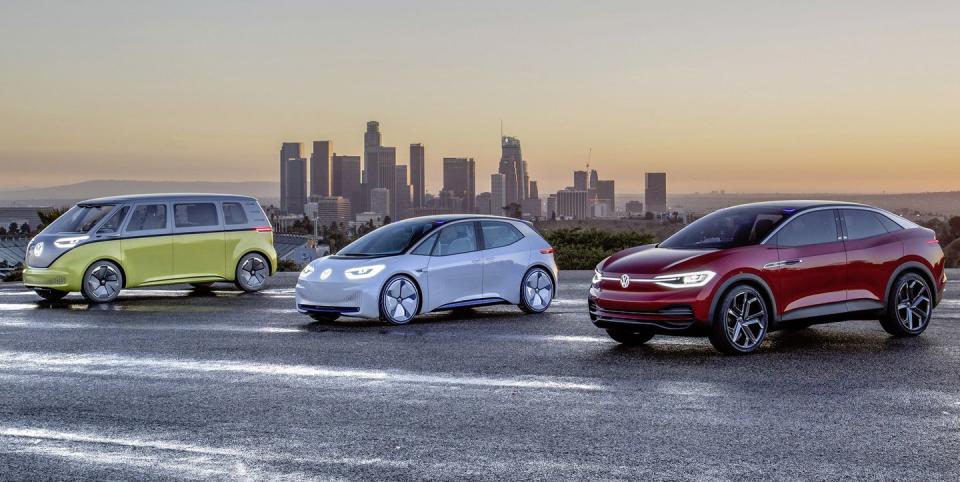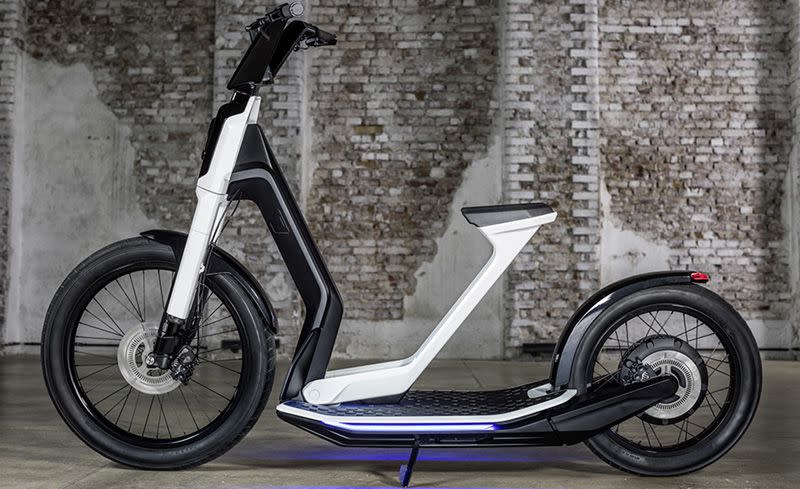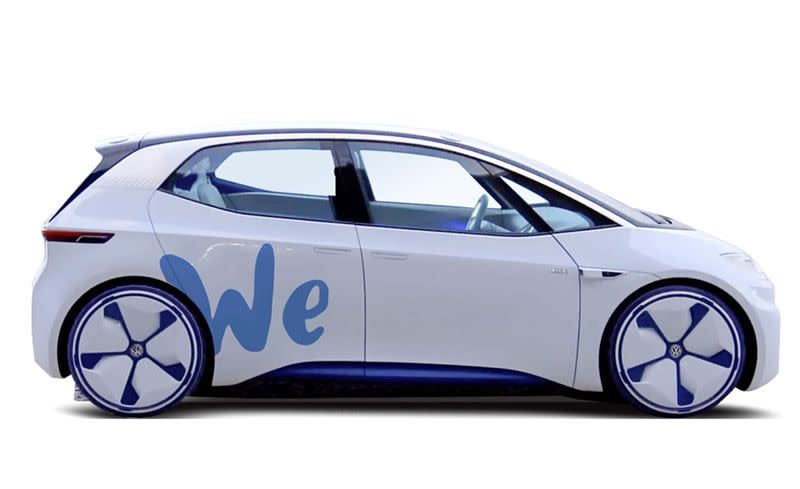Volkswagen Plans a Battery-Powered Jump into Car Sharing

Volkswagen has revealed plans to enter the urban car-sharing business with a special hook: It will only use electric vehicles. The distinction may help VW, a latecomer to this business, find some inroads in a fragmented mobility sector.
The service will be part of the Volkswagen We platform, revealed earlier this spring. The company calls We a digital ecosystem. It’s a big-picture set of apps that connect drivers to vehicles in various ways as the entire industry engages in a guessing game about the future of urban mobility.

Volkswagen’s upcoming I.D. electric vehicles will almost certainly be a part of the new effort. They’d only be a fraction of VW’s involvement in this new economy, however, as the effort would complement ride-hailing services offered through Moia, Volkswagen’s service that’s eyeing autonomous vehicles, commuter pools, and other means of getting around without traditional vehicle ownership. VW has also been investing in Gett, a European rival to Lyft and Uber.
The automaker also hinted that the new service will offer more than cars; two recent e-mobility concepts, the I.D. Cityskater (an electric skateboard) and the I.D. Streetmate (an electric scooter), were mentioned in a release as examples of “micromobility” solutions that could also be part of the We system.

Many automakers are striving to find a place-and a viable business model-in the idea of car sharing, whether it be via a fleet of company-owned vehicles or the idea of individuals making their own vehicles available to others. However, most of those efforts so far have landed in an awkward space somewhere between car ownership and ride-hailing giants Uber and Lyft-and sorely missing the convenience (or ubiquity) of either alternative.
The move comes years behind similar moves by VW’s German rivals. Mercedes-Benz parent company Daimler entered the market with Car2Go in 2008, and the BMW Group launched a rival operation called ReachNow in 2016. Those two companies recently announced a joint-venture agreement that will culminate in a merged mobility-services operation-not yet fully detailed-that will allow easier scaling up and promote electric vehicles. Car2Go currently operates in Austin, Columbus, Denver, New York City, Portland, Seattle, and Washington., D.C., while ReachNow is present in Seattle, Portland and-on a very small scale supporting residential fleets-in Brooklyn.
VW Commits to Large-Scale Ride Sharing, Expects Big Revenue by 2025
Research Volkswagen e-Golf: Reviews, Photos, Specifications, Prices, and More
Car2Go has in the past aimed for a high percentage of electric vehicles in its fleet but backed off after encountering logistical hurdles in keeping its EVs fully charged. Uber also recently announced a plan to incentivize electric-vehicle drivers.
One novel advantage VW might have is that its new electric car-sharing operation may be able to rely on the DC fast-charging infrastructure that it’s building through Electrify America, the 10-year, $2 billion effort through which the automaker is atoning for its diesel misdeeds under terms of a court settlement.
The company aims to start the Volkswagen We car-sharing operation in 2019, with an international rollout to consumers beginning in 2020 that it says will include major cities in North America, Europe, and Asia.
You Might Also Like

 Yahoo Autos
Yahoo Autos 